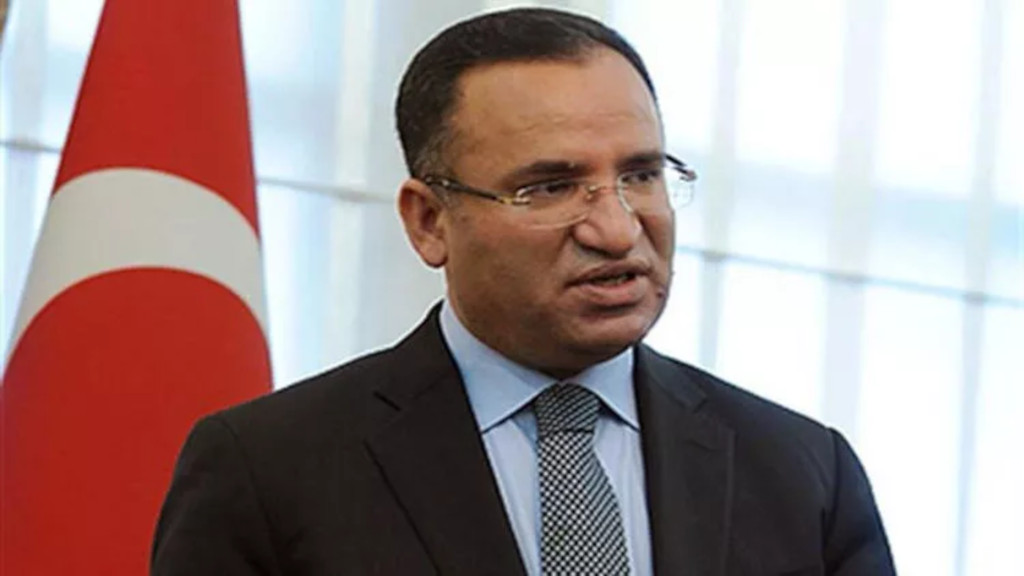Turkey’s justice minister said Wednesday that his ministry will seek the extradition of 33 political dissidents from Sweden and Finland under a deal to secure Ankara’s support for the Nordic countries’ NATO membership bids, according to Agence France-Presse and Turkish media.
President Recep Tayyip Erdoğan dropped weeks of resistance to the two countries’ NATO ambitions at crunch talks held in Madrid on the eve of an alliance summit Wednesday focused on Russia’s invasion of Ukraine.
Erdoğan emerged from the meeting declaring victory after securing a 10-point agreement under which the two countries vowed to join Turkey’s fight against outlawed Kurdish militants and dissidents affiliated with the Gülen movement.
The Turkish government labels the faith-based Gülen movement as a terrorist organization and accuses it masterminding a failed coup in July 2016. The movement strongly denies involvement in the coup attempt or any terrorist activity.
Turkey put the deal to the immediate test by announcing that it would seek the extradition of 12 suspects from Finland and 21 from Sweden.
“We will seek the extradition of terrorists from the relevant countries within the framework of the new agreement,” Justice Minister Bekir Bozdağ said in a statement.
“We ask them to fulfil their promises.”
Among the unnamed suspects are political dissidents who are accused of having ties to the PKK and the Gülen movement as well as left-wing activists.
In the list, which was not officially made public, are the names of prominent Turkish publisher, writer and free speech activist Ragıp Zarakolu, journalists Bülent Keneş and Levent Kenez and writer Harun Tokak, among others, according to a report in the pro-government Hürriyet daily earlier this week.
The European Union and Washington both recognize the PKK as a terrorist organization because of the brutal tactics it employed during a decades-long insurgency against the Turkish state. However, they do not recognize the Gülen movement as a terrorist organization.
But the agreement also stipulates that Sweden and Finland vow to “not provide support” to the YPG — a PKK offshoot in Syria that played an instrumental role in the US-led alliance against the Islamic State in Iraq and the Levant (ISIL)
Sweden and Finland abandoned decades of military non-alignment in response to Russia’s invasion of Ukraine and asked to join the US-led alliance in May.
‘Got what it wanted’
Their applications appeared to be headed for swift approval until Erdoğan stepped in.
The Turkish leader accused Finland and particularly Sweden of providing a haven to Kurdish militants and financing terror.
Erdoğan also wanted the two countries to lift embargoes on weapons deliveries they imposed in response to Turkey’s 2019 military incursion into Syria.
The memorandum appears to address many of Erdoğan’s concerns.
It says Finland and Sweden pledge to “address Turkey’s pending deportation or extradition requests of terror suspects expeditiously and thoroughly.”
“Finland and Sweden confirm that the PKK is a proscribed terrorist organization,” says the agreement.
“Finland and Sweden commit to prevent activities of the PKK and all other terrorist organizations and their extensions, as well as activities by individuals … linked to these terrorist organizations.”
Erdoğan’s office hailed the agreement as a victory.
“Turkey got what it wanted,” his office declared in a statement.
Erdoğan also secured the promise of a long-sought meeting with US President Joe Biden on the sidelines of the NATO talks.
A US official told reporters that Biden was “keen” to improve relations with Turkey after a difficult spell caused in part by Turkey’s crackdown on human rights.


